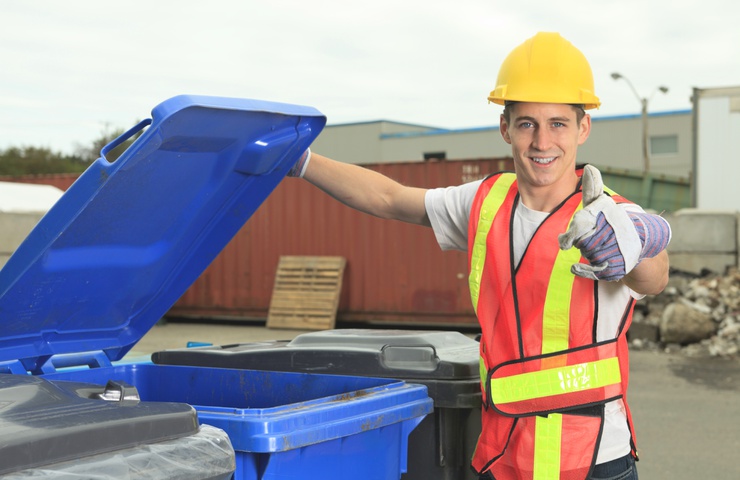Why does the waste management industry need special container management?

“Yes, we have containers in the company. Sure, we also need something to manage them.”
This assessment is the easy part of the exercise. A Google search on the topic quickly shows that there is a wealth of information and systems. What is actually difficult is answering the following question for yourself and your company: Is this container management suitable for my waste management company?
Is it suitable?
The fact that a solution is suitable for a waste management company is no longer sufficient in this day and age. A clear competitive advantage can only be achieved if the solution is tailored to the industry and can be embedded seamlessly into the company and its system landscape. Hence, the use of any container solution, including the functions for the transport of goods by rail, road or sea, is simply not suitable. The opposite is true: The added value perceived in the beginning would not hold out against the efforts for customization and implementation.
Container management embedded in the ERP suite
Microsoft solutions rightly take the approach of integrating all processes into one platform. With Microsoft Dynamics 365, you are several steps ahead of comparable solutions in technical terms. This platform approach further underlines the need for incorporation in the ERP system. Container management is then not only seamlessly integrated into the user interface but also risky interfaces in the architecture are eliminated. Additional advantages of such an integrated system landscape are that recurring costs for upgrades or managing several partners in a project are eliminated.
Container management and the internet of things
It is especially the possibilities presented by the internet of things which allow new business models in the field of waste management services and container handling. With telemetry data, waste containers can provide information about their filling levels and thus the need for service activities. Examples of this are emptying or cleaning of containers. Special space-saving underfloor containers in urban centres are ideal for such applications. Hence, also new service concepts with increased customer orientation are on the cards.
However – as mentioned above – you need a seamlessly embedded solution to implement such new business models and realise the added value of a comprehensive container management solution. Some of the core aspects which can be realised are:
- information about container site,
- increasing the utilization of containers,
- control over cash flows.
Why does the waste management industry need special container management?
We often encounter challenges in our projects which, in their entirety, we would like to call the special feature of this industry. Only the interaction of these issues from container management with the management system, the ERP, allows for a future-oriented further development of the services and thus also of the company.
Therefore, the following functionalities are essential components in the implementation of COSMO CONSULT´s waste management and recycling solution:
- uninterrupted monitoring of both internal container movements (containers, skips, barrels, etc.) and those between customers and business partners
- container inventory
- customer/supplier/contract partner container status per address
- history of all container movements
- tracking of materials in barrels and containers
- integrated rental module with automatic rental billing by the day
- possibility for unique container identification (barcodes, RFID, etc.).
- handling of various container-related services, such as placing, emptying or exchanging containers
A glimpse into the glass ball
A scenario for "future-oriented container management" can be found in our blog post.
About the Author: Johannes Neumüller

Johannes Neumüller is responsible for sales and marketing in the waste and recycling industry with COSMO CONSULT. He started his professional career as a consultant for digitalization projects in the production industry. After positions such as project- and sales manager he joined a global group of companies as strategy manager. He graduated from the University of Applied Sciences of Upper Austria with a specialization in hardware and software engineering and holds an MBA degree for global sales and marketing management.